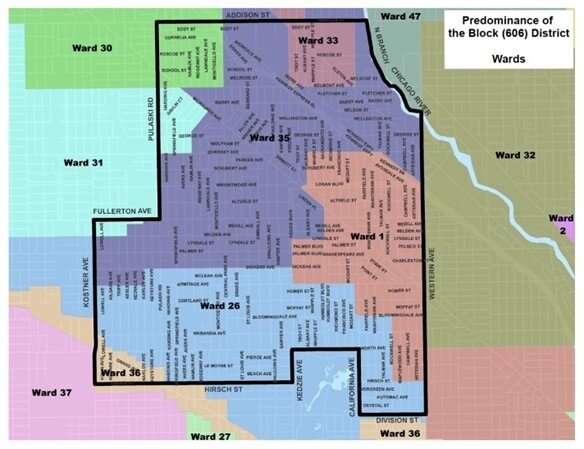Have you ever wondered why some well-intentioned housing laws end up making things worse for the very people they’re trying to help? Today, we’re examining Chicago’s fascinating Northwest Housing Preservation Ordinance. And what we’ve found might surprise you.
Speaker 2:
Absolutely. And it’s a critical topic right now. I’ve been studying housing regulations for years. And what’s happening in Chicago is a perfect example of how good intentions can sometimes lead to unexpected consequences.
Speaker 1:
Before we go further, could you give our listeners a quick overview of what this ordinance actually does?
Speaker 2:
Sure thing. Basically, the ordinance covers about six square miles in Chicago’s Northwest side, areas like Logan Square, Avondale and Humboldt Park. It does two main things. It dramatically increases demolition fees, and gives tenants new rights when properties are being sold.
Speaker 1:
And those sound like protective measures on the surface, right?
Speaker 2:
Yeah, they do. But here’s where it gets interesting. The ordinance can extend property sales by up to nine months compared to the normal 30 to 45 day timeline. That’s creating some serious ripple effects in the market.
Speaker 1:
Nine months? That’s significant. What are you seeing on the ground?
Speaker 2:
Well, we’re already seeing some fascinating developments. Two aldermen who initially supported the ordinance, Cardona and Villegas, have actually withdrawn their support. They’re seeing firsthand how it’s affecting their constituents.
Speaker 1:
Wow. Tell us more about what they’re experiencing.
Speaker 2:
Alderman Cardona put it pretty bluntly when he said it’s not working. He’s had property owners complaining that these new rules are interfering with their retirement plans. We’re talking about people who’ve invested their life savings in these properties.
Speaker 1:
That’s a great point. We’ll come back to that in just a moment. But first, a quick word from our sponsor.
Speaker 3:
Are you looking to sell your Chicago property without the hassle? Braddock Investment Group, Inc. specializes in buying houses as is for cash. Founded by Chicago native, Zach Shepard, we understand the local market and can close on your timeline, sometimes in as little as seven days. Visit us at braddockinvestmentgroup.com to learn more.
Speaker 1:
And we’re back. You were talking about the impact on property owners. What about the tenants? Isn’t this supposed to help them?
Speaker 2:
That’s the thing. While it’s meant to protect tenants, the economics actually work against them. You know what happens when you increase costs and complexity for property owners? Those expenses don’t just disappear, they get passed on through higher rents or reduced maintenance.
Speaker 1:
Right, that makes sense. It’s like a balloon effect?
Speaker 2:
Exactly. When you squeeze one part of the system, the pressure just moves somewhere else. And we’re seeing three main problems, increased costs, longer transaction times, and reduced investment in these neighborhoods.
Speaker 1:
How does this compare to similar policies in other cities?
Speaker 2:
Actually, we’ve got a perfect example from Washington D.C. They’ve had their top of law, similar to Chicago’s ordinance, since 1980. And after four decades, it hasn’t solved their affordable housing crisis. If anything, it’s created more bureaucracy.
Speaker 1:
Have you seen any successful alternatives?
Speaker 2:
Definitely. You know what’s interesting? The most successful approaches tend to focus on three key things, increasing housing supply, streamlining, permitting processes, and creating positive incentives for property improvement.
Speaker 1:
That makes a ton of sense. What about the financial disclosure requirements? I’ve heard those are pretty extensive.
Speaker 2:
Oh, man, don’t get me started. The ordinance requires property owners to share detailed financial records. We’re talking rent rolls, vacancy rates, income statements, not just with tenants, but with any third parties who might get involved. It’s unprecedented.
Speaker 1:
I imagine that creates some privacy concerns.
Speaker 2:
You betcha. And here’s something most people don’t realize. These disclosures can actually harm competitiveness in the market. Think about it, would you want your business’s private financial information potentially shared with competitors?
Speaker 1:
Certainly not. So what’s the impact on naturally occurring affordable housing?
Speaker 2:
That’s actually one of the biggest ironies here. Chicago relies on independent property owners for about 70% of its affordable housing stock. These are often family-run businesses that maintain affordable rates without government subsidies. This ordinance is making it harder for them to operate.
Speaker 1:
Is there any hope for improvement?
Speaker 2:
Well, there’s a sunset clause. The ordinance expires in December 2029. But honestly, waiting five years to fix these issues could cause significant damage to these neighborhoods.
Speaker 1:
So what would you suggest instead?
Speaker 2:
I think we need to focus on what actually works. Removing barriers to housing development, offering tax incentives for maintaining affordable rents, and streamlining the permitting process. These approaches tend to work with market forces rather than against them.
Speaker 1:
Makes perfect sense. As we wrap up, what’s your biggest concern for the future?
Speaker 2:
I’m worried about what we call investment flight. When regulations become too complex and uncertain, responsible investors simply move their money elsewhere. And guess what happens then? The neighborhoods that need investment the most end up getting the least.
Speaker 1:
Thank you for sharing these insights today. For our listeners who want to learn more about Chicago’s real estate market or get help with their properties, remember you can visit the Braddock Investment Group at the link in the description. Any final thoughts?
Speaker 2:
Yeah, I think the key takeaway is that we all want the same thing, affordable quality housing for everyone. But we need to be smart about how we get there. Sometimes the best intentions can lead us down the wrong path.
Speaker 1:
Well said. Thanks for being with us today.
Speaker 2:
Thanks for having me. It’s been great discussing these important issues.


